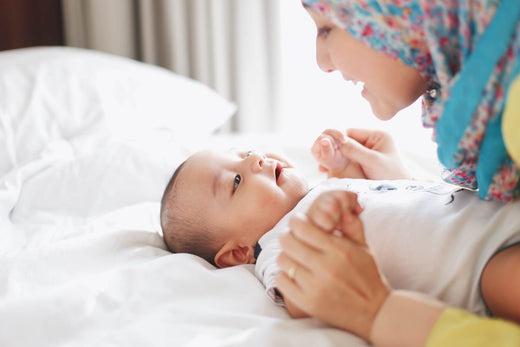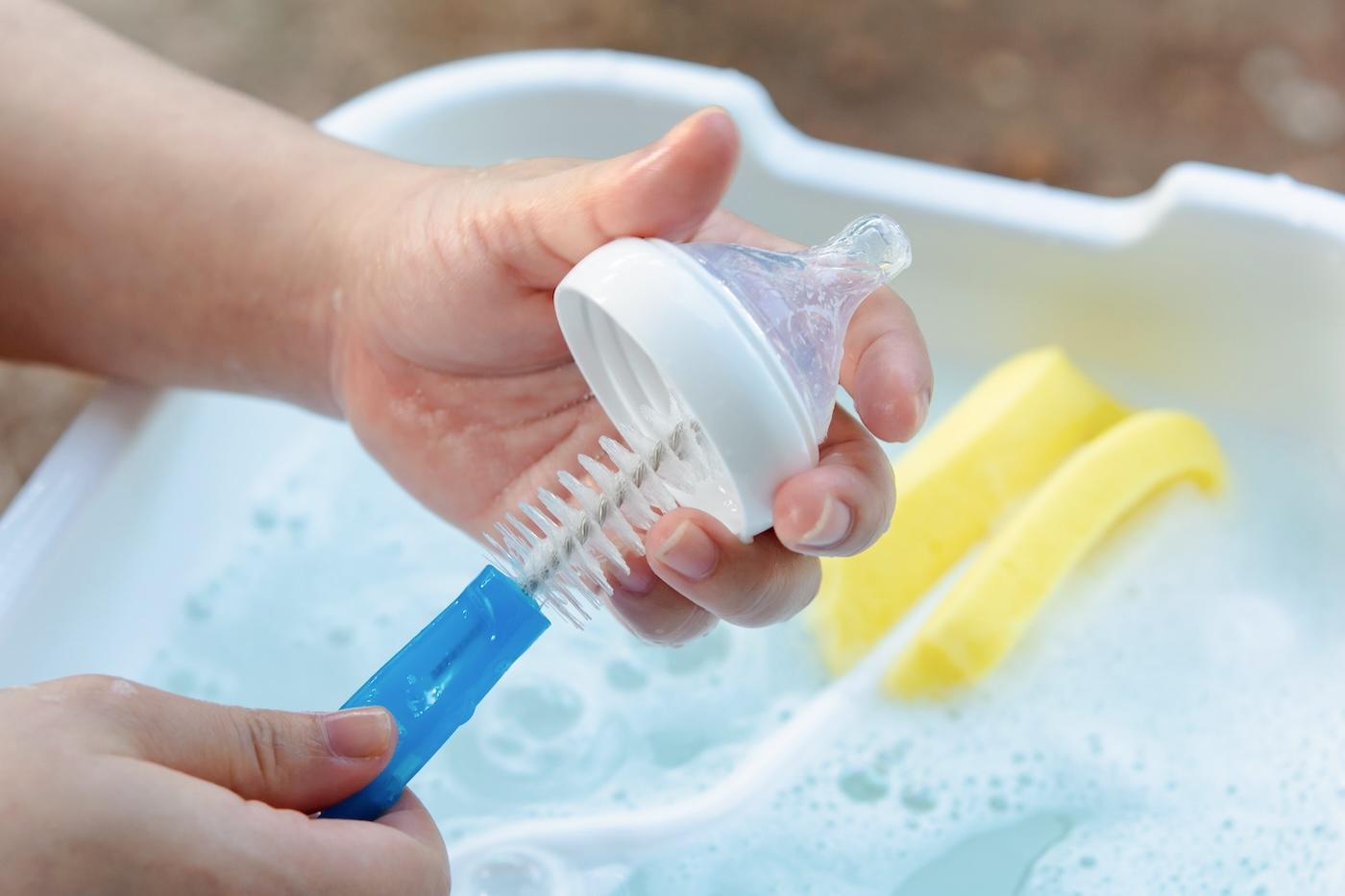BABY
8 Easy and Engaging Activities for Babies 0 to 6 Months
Delight and entertain your little one with these engaging activities.

Written by
Happiest Baby Staff

The first six months of a baby's life are some of the most exciting. Not only are you falling in love every single day as you both discover each other, but your baby is developing at rocket speed. In the first six months of life, your child will go through several areas of growth, including social and emotional, language development, and cognitive (learning, problem-solving, and thinking skills.)
To help your little one along their way, you can choose from an endless array of activities for babies to stimulate your lovebug's curiosity and progress. Here are eight activities to try with your baby. And remember, the most important thing you can do is shower your baby with lots of love.
Singing
Singing is a beautiful way to explore emotions with your baby. By using vocal range and rhyming songs, you can show your baby how to find comfort in soft songs or how to express excitement and happiness with fast-paced and bouncy melodies. The time you spend singing with your child is another fantastic opportunity to bond with your baby. Don’t know which tune to belt out? Here are some fun songs to sing with babies.
Talking
Babies might not know how to talk yet, but the more you talk to them, the faster they pick up verbal cues. Parents who spend time talking to their babies show their little ones that conversing means taking turns talking. Babies also begin to learn appropriate voice levels and tone. And sure, it will be a while before they practice these details, but they pick it up and store it away for future use. When babies begin to babble, try talking back and practice taking turns.
Grasping Games
Babies are naturally curious and will grasp at almost anything. Take advantage of this by creating fun—and safe—grasping activities to test out their hand muscles and hand-eye coordination. Have a basket on hand with objects that are safe for small hands, such as a piece of crinkly paper or squishy ball. Remember, nothing small enough to choke on. Experiment with texture, color, and size, and encourage your child to pick up and play with the different objects.
Mirror Games
Babies and narcissists have something in common: They love mirrors. They get a kick out of seeing their faces and playing with their reflections. This is something you can build upon with mirror games. Clap together, make silly faces, play peek-a-boo, and ask your child, "who is that?" to help them learn about reflections and emotions.
Tummy Time
Babies need tummy time every day, even newborns. By allowing your child to rest on their bellies on a blanket or play mat a few minutes a day, they get to practice using their neck and shoulder muscles. They also get to explore their new world from a different perspective, one that activates their muscles and encourages movement.
Sitting Up, Kicking, and Wiggling
Just like tummy time, movement time is essential for developing muscles and gross motor skills. If your baby has begun to master holding up their head, try holding their hands and gently pulling them from the supine to the sitting up position. This movement engages their core body muscles as well as their hand grip. Encourage your baby to kick and wiggle on a firm but soft surface like a padded mat on the floor.
Baby Massage
Skin-to-skin touch between parent and child is a huge deal. Not only does it help to form strong bonds, but it also helps a baby to feel safe and loved. You can use this time to practice talking and singing with your child. Babies need touch to thrive, so massage is a lovely and gentle way to give them what they need while also creating stronger bonds together. Here are some tips on how to give a baby a massage.
Quiet Time
There is wisdom in the art of doing nothing. In an era when kids are over-scheduled, it is a great idea to begin to engrain the importance of down time early and often. Encourage your child to feel comfortable doing nothing. Try snuggling or laying down together and breathing. Listen to the ambient sounds of your home and point them out to your baby. Quiet time can teach your kids to reconnect with themselves and to help self-regulate their emotions.
Disclaimer: The information on our site is NOT medical advice for any specific person or condition. It is only meant as general information. If you have any medical questions and concerns about your child or yourself, please contact your health provider.
SHARE THIS ARTICLE
MOST LOVED
Sleepytime Sidekicks












